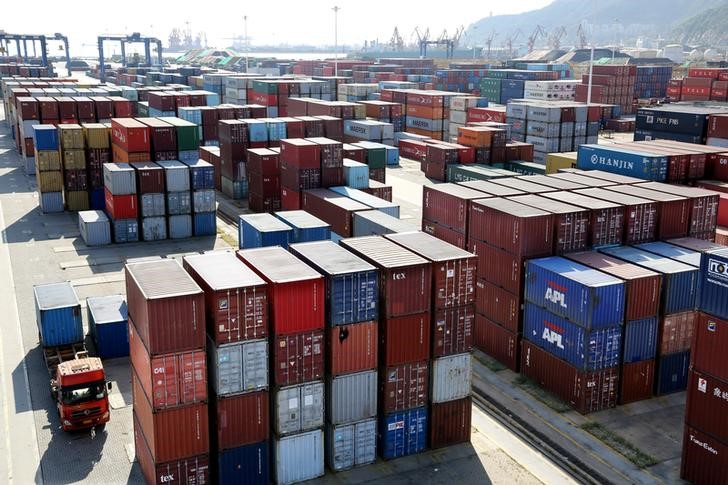(Bloomberg) -- Terms of Trade is a daily newsletter that untangles a world embroiled in trade wars. Sign up here.
South Korea’s trade spat with Japan highlights a problem that President Moon Jae-in and his predecessors have long sought to resolve: a large trade deficit that reflects a reliance on Japanese technology.
While South Korea has a reputation for trade and current account surpluses, it hasn’t been in the black with Japan since 1965, when the two countries normalized relations after colonial rule.
Japan-South Korea Spat Takes Dangerous Turn as Trump Stays Quiet
South Korea’s trade deficit with Japan was $24 billion in 2018, the biggest among more than 250 trade partners. High-tech products are the biggest source of the shortfall with Japan, with semiconductors and chip-making equipment accounting for more than a third, according to the Korea International Trade Association.
Tokyo’s restrictions on tech exports to its neighbor have highlighted that while South Korea’s overall economy is highly dependent on overseas demand for its semiconductors and smartphones, the tech sector itself is also highly reliant on key products supplied by Japan.
The restrictions, which took effect Thursday, appear well targeted at that reliance and are likely to affect production of Samsung Electronics (KS:005930) Co. semiconductors and LG Display Co. screens.
South Korea’s Finance Minister Hong Nam-ki described the measures as obvious economic retaliation over a long-running dispute over colonial era conscripted labor. In an interview with local CBS Radio on Thursday he said that Seoul would consider “corresponding measures” if Japan refused to scrap the ban. Hong didn’t rule out the possibility of South Korea implementing its own export regulations.
Legacy Lingers
After South Korea and Japan agreed to normalize ties following the 1910-1945 colonial rule, Seoul largely modeled its development strategy on Japan’s, using settlement money provided by Tokyo as seed money to grow its industries.
Successive Korean governments have flagged the need to reduce the dependence on supply chains starting in Japan. In 2013, the Korean government issued a report proposing that the country wean itself away from its reliance on Japan for components and materials, seeing this as a fundamental reason for the large deficit.
Economists have warned that the restrictions have the potential to further roil global trade as the dispute between the U.S. and China rumbles on, given South Korea’s position as the world’s largest producer of memory chips.
Japan’s Export Restrictions Threaten Blow to South Korea Tech
Rory Green, an economist with research firm TS Lombard says that while the measures could have “significant repercussions” for the global economy if they are made permanent and are strictly enforced, they could also backfire against Japan.
“Samsung and SK Hynix could actually welcome a short-term supply shock, which accelerates inventory destocking and boosts memory chip prices. For Japanese producers, there is a risk of permanent loss in market share,” he said.
